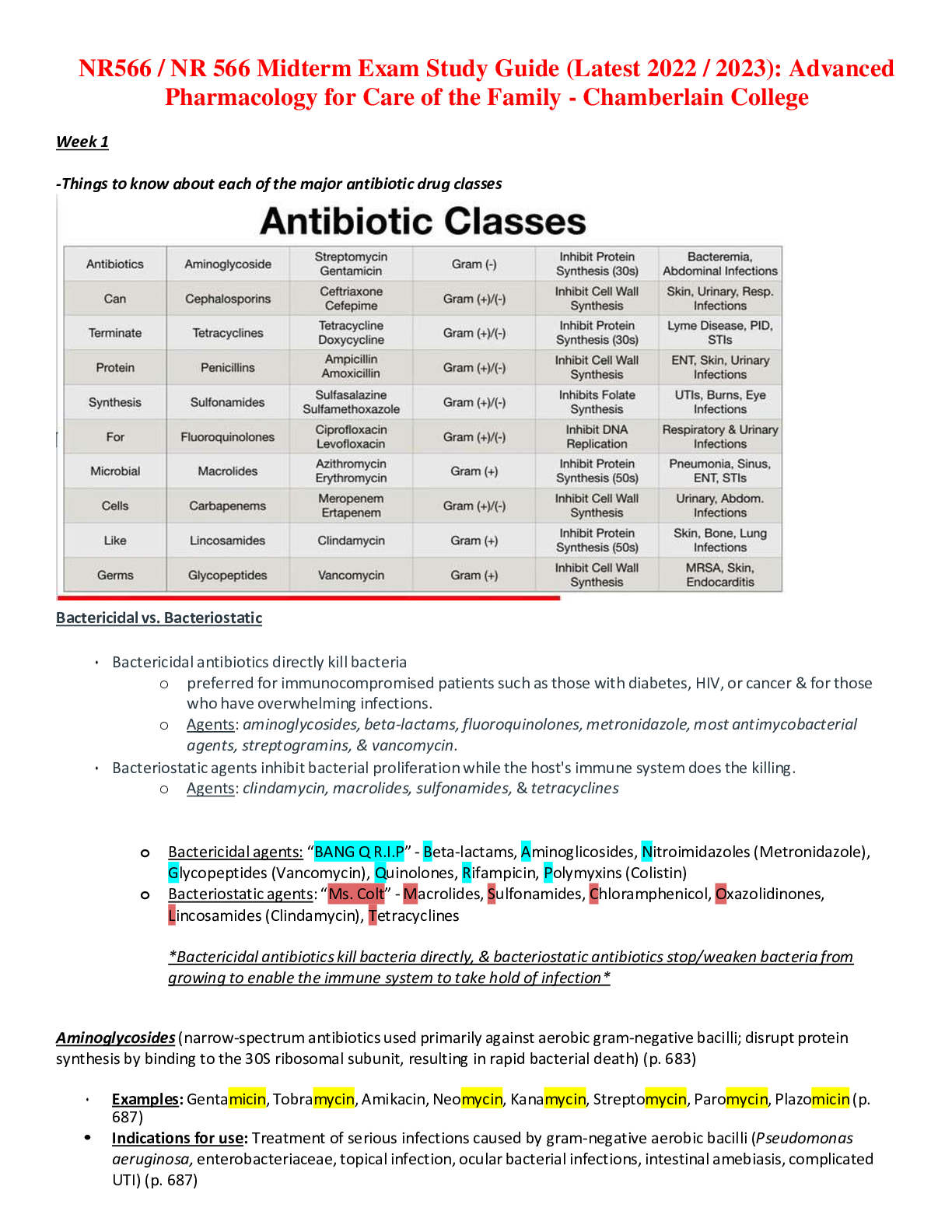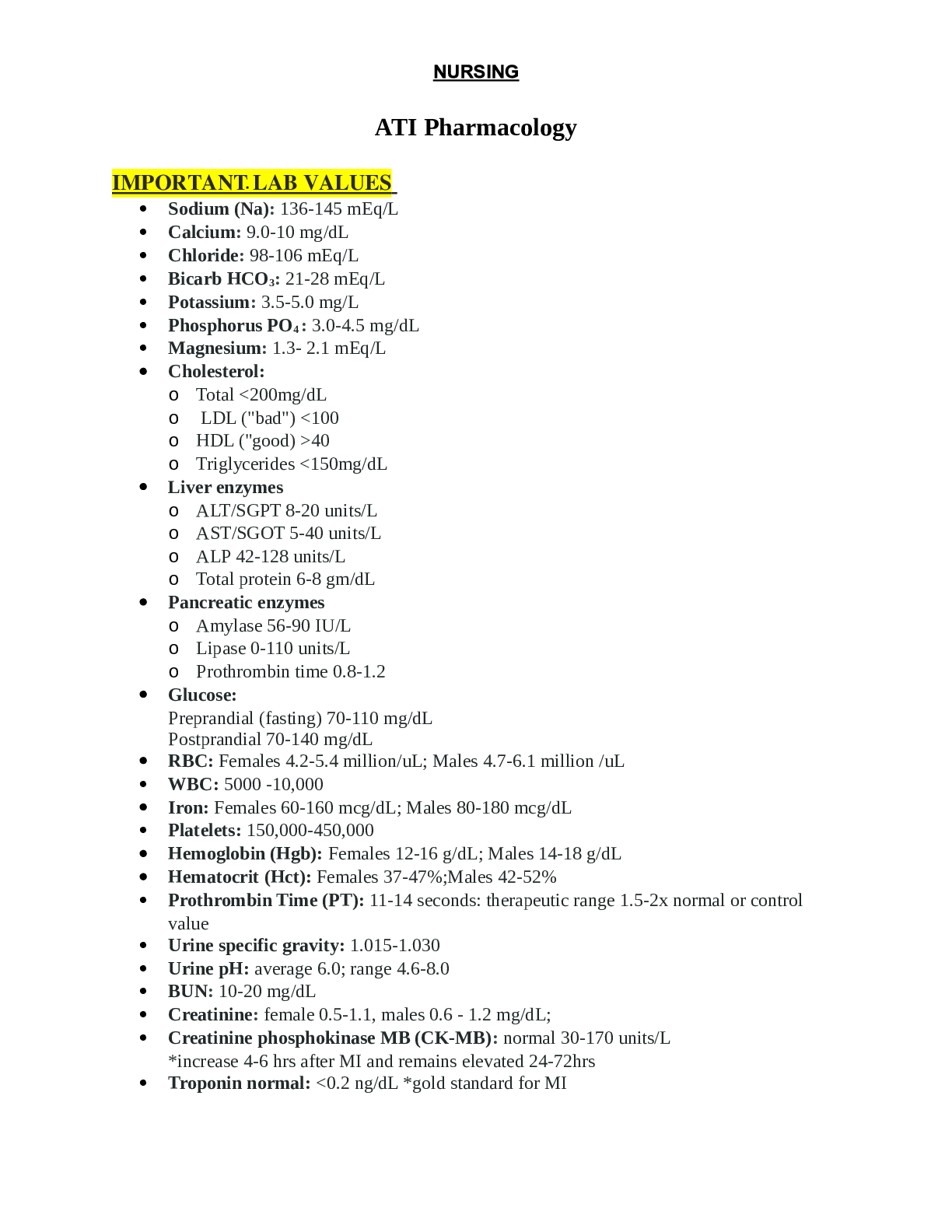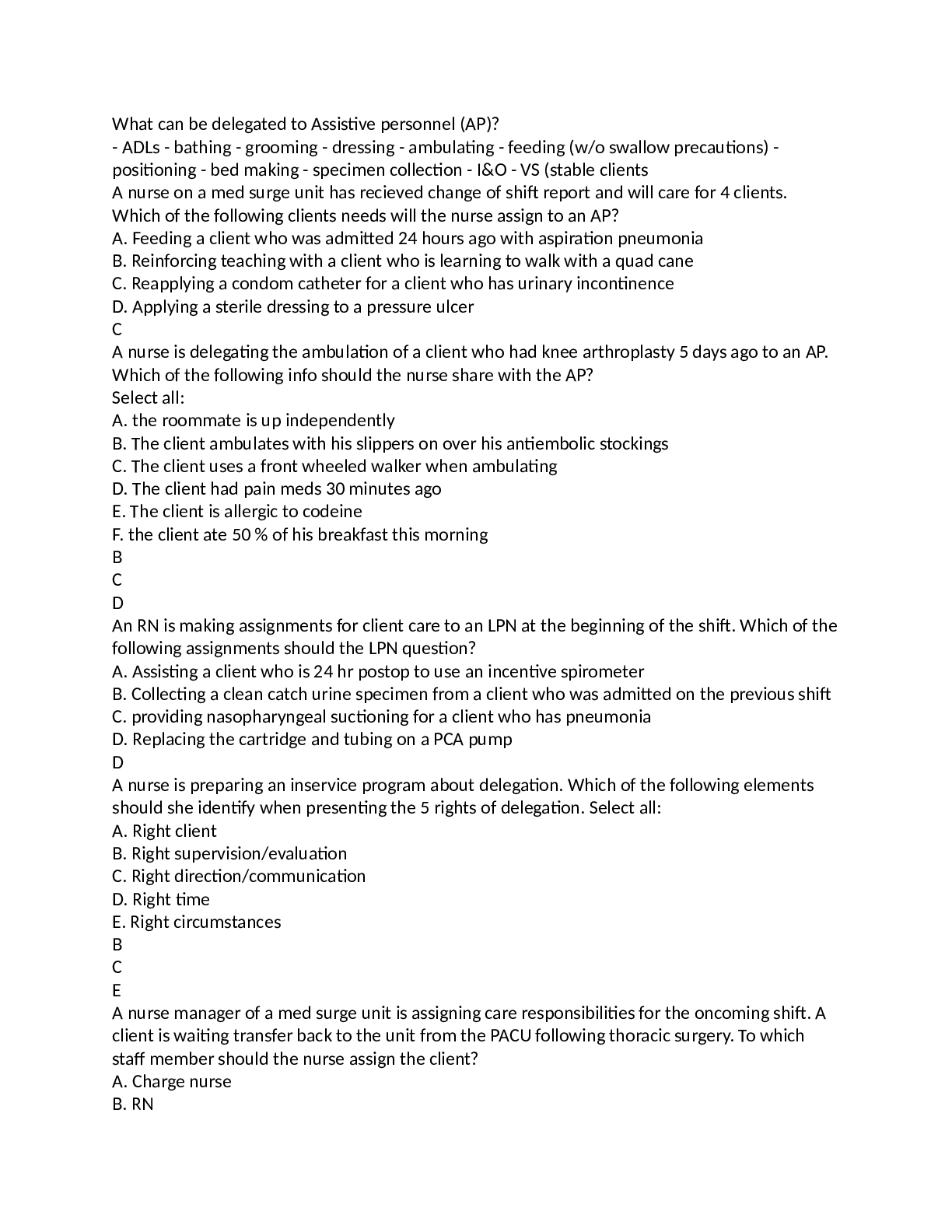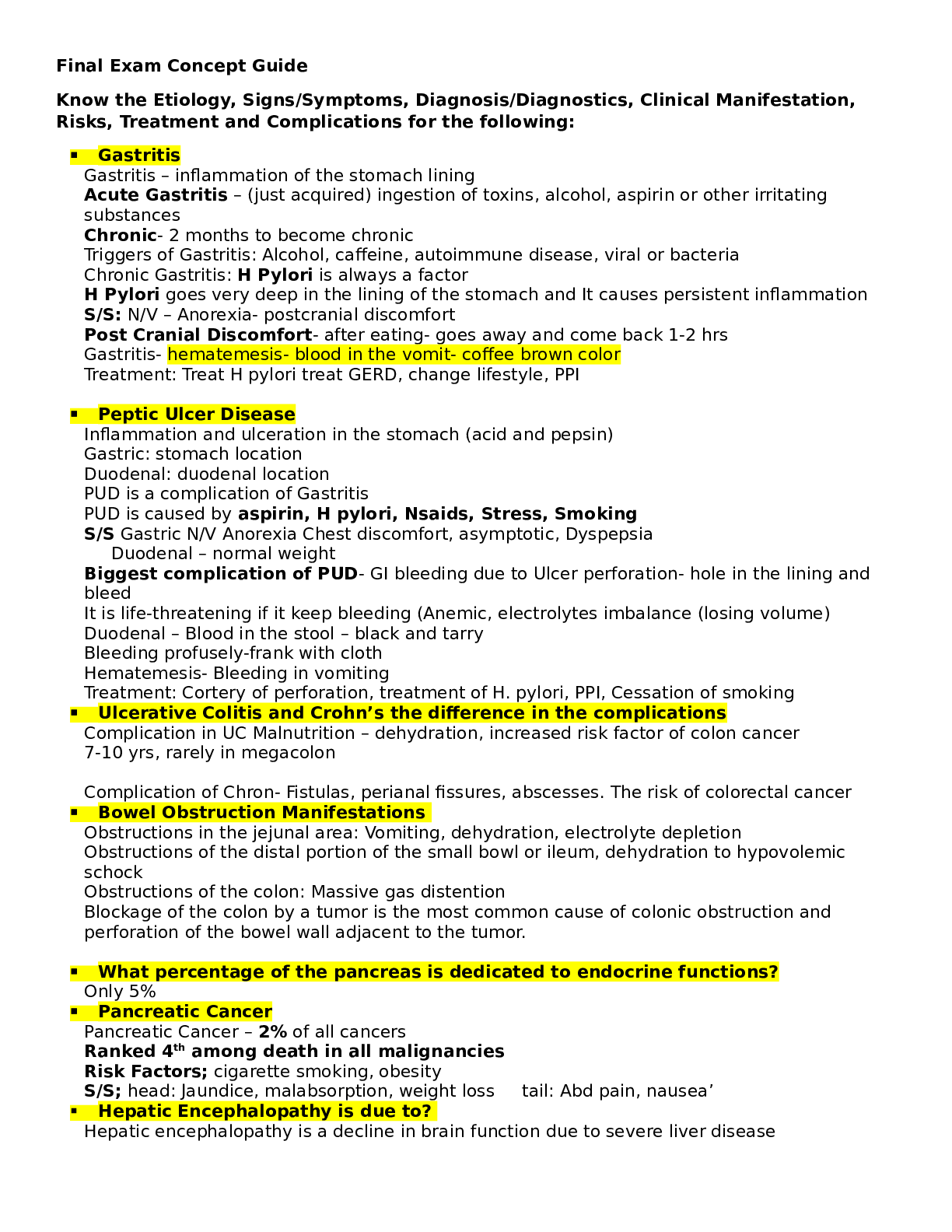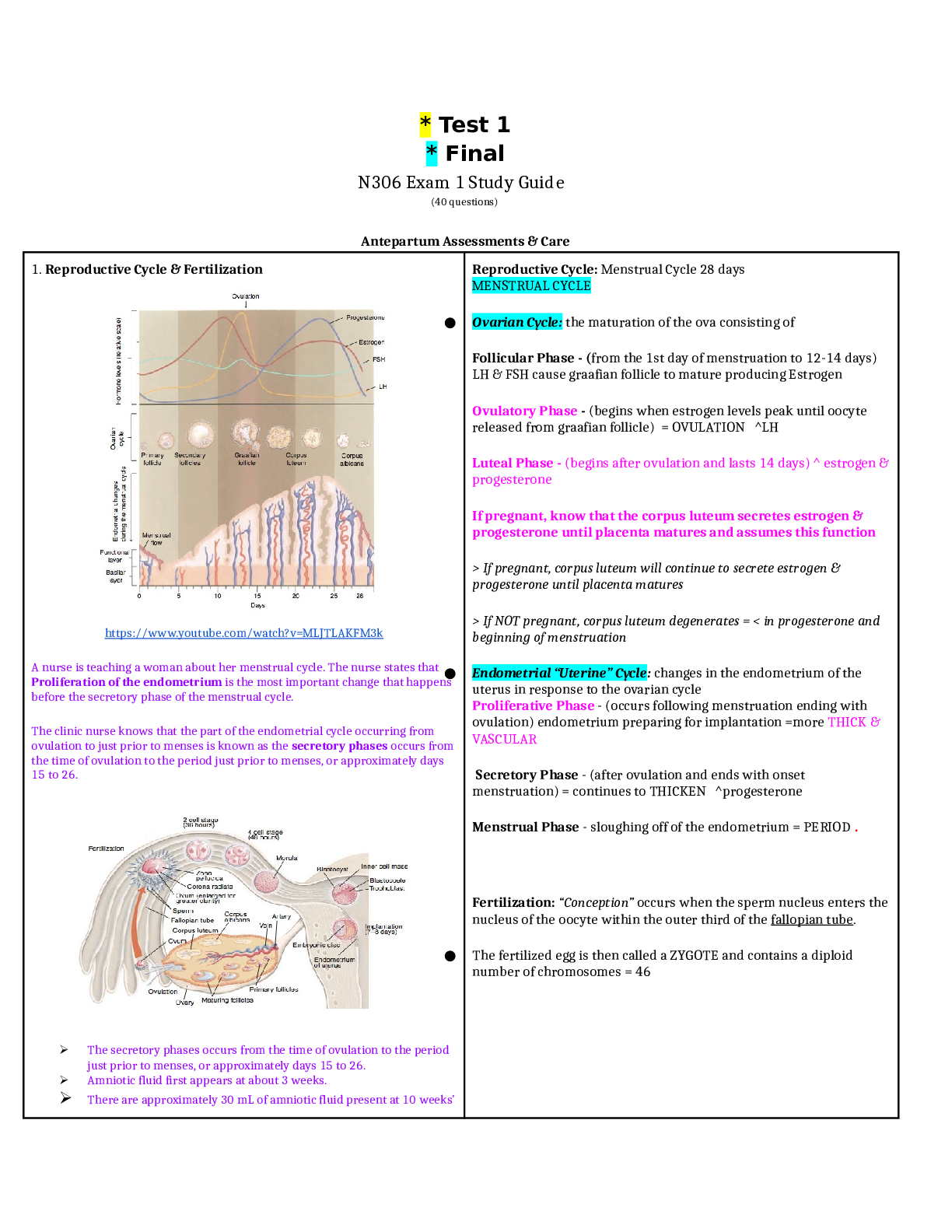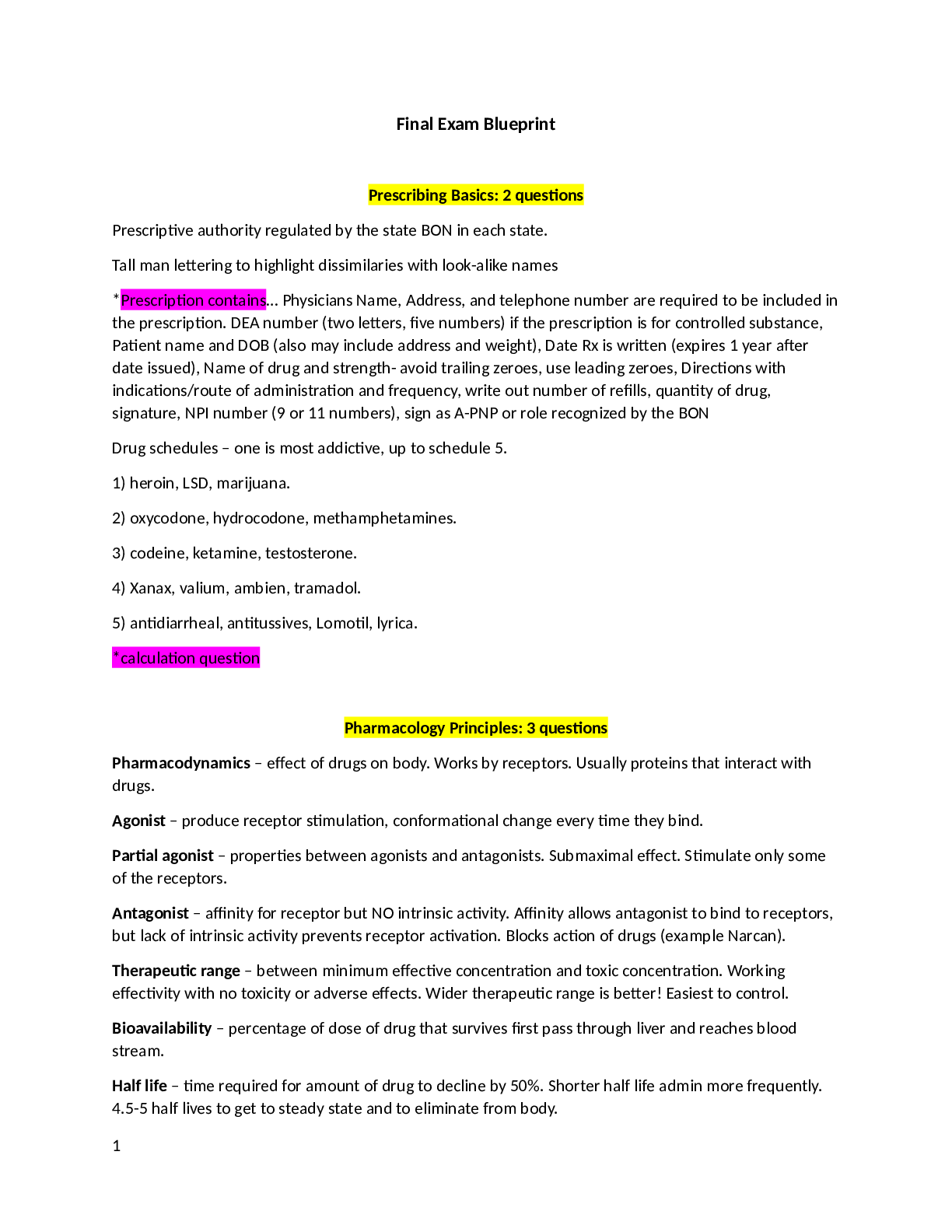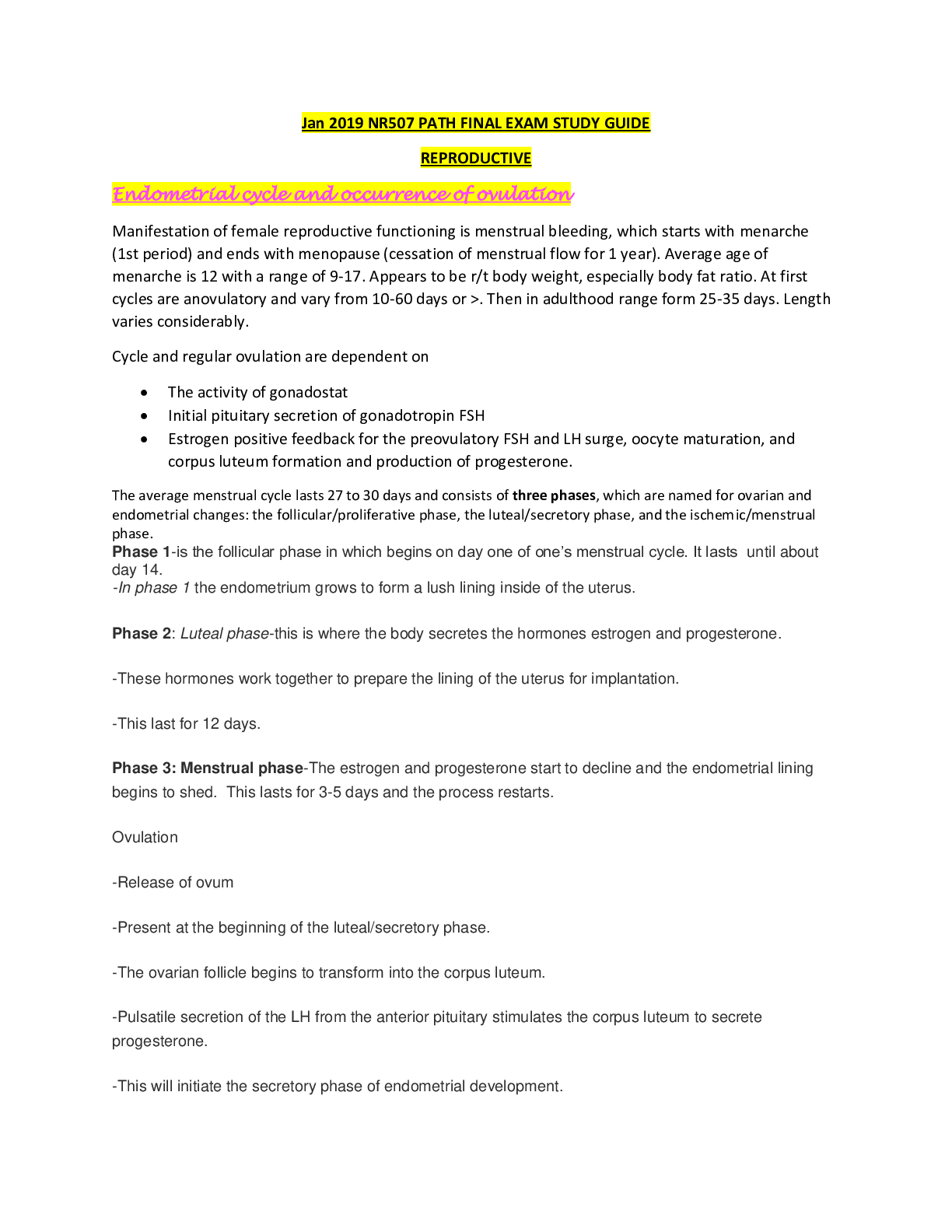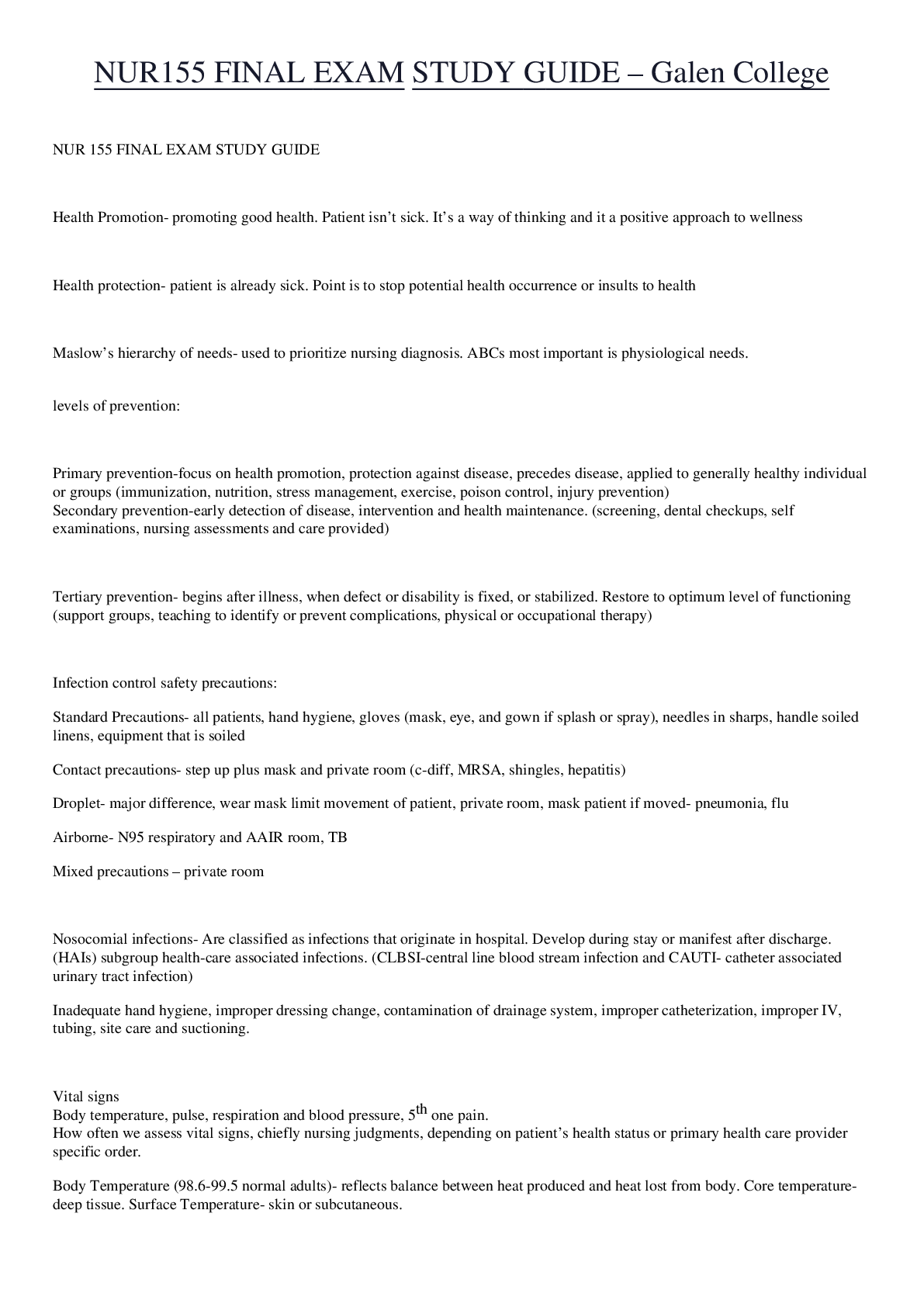Health Care > STUDY GUIDE > NR 226 Final Exam Study Outline Guide|ADPIE for ALL|NR-226 Final Exam Review Latest 2021 (All)
NR 226 Final Exam Study Outline Guide|ADPIE for ALL|NR-226 Final Exam Review Latest 2021
Document Content and Description Below
The Nursing Process o The purpose of the nursing process is to diagnose and treat human responses (e.g., patient symptoms, need for knowledge) to actual or potential health problems. Use of the pro... cess allows nurses to help patients meet agreed-on outcomes for better health. o The nursing process requires a nurse to use the general and specific critical thinking competencies described earlier to focus on a particular patient's unique needs. The format for the nursing process is unique to the discipline of nursing and provides a common language and process for nurses to “think through” patients' clinical problems • 5 Steps of the Nursing Process (ADPIE) o Assessment ▪ Phases of interview/assessment • An interview is an approach for gathering subjective and objective data from a patient through an organized conversation. An initial interview involves collecting a nursing health history and gathering information about a patient's condition • 1. Orientation and Setting an Agenda o Begin an interview by introducing yourself and your position and explaining the purpose of the interview. Explain why you are collecting data and assure patients that all of the information will be confidential. o Your aim is to set an agenda for how you will gather information about a patient's current chief concerns or problems. Remember, the best clinical interview focuses on a patient's goals, preferences, and concerns and not on your agenda. • 2. Working Phase-Collecting Assessment or Nursing Health History o Start an assessment or a nursing health history with open- ended questions that allow patients to describe more clearly their concerns and problems. For example, begin by having a patient explain symptoms or physical concerns and describe what he or she knows about the health problem or ask him or her to describe health care expectations. o Use attentive listening and other therapeutic communication techniques that encourage a patient to tell his or her story. • 3. Terminating an Interview o Termination of an interview requires skill. You summarize your discussion with a patient and check for accuracy of the information collected. Give your patient a clue that the interview is coming to an end. For example, say, “I have just two more questions. We'll be finished in a few more minutes.” o This helps a patient maintain direct attention without being distracted by wondering when the interview will end. ▪ Methods of obtaining data • An assessment is necessary for you to gather information to make accurate judgments about a patient's current condition. Your information comes from: • The patient through interview, observations, and physical examination. • Family members or significant others' reports and response to interviews. • Other members of the health care team. • Medical record information (e.g., patient history, laboratory work, x-ray film results, multidisciplinary consultations). • Scientific and medical literature (evidence about disease conditions, assessment techniques, and standards). ▪ Subjective Data • Subjective data are your patients' verbal descriptions of their health problems. For example, Mr. Lawson's self-report of pain at the area where his incision slightly separated is an example of subjective data. Subjective data include patients' feelings, perceptions, and self-report of symptoms. • Only patients provide subjective data relevant to their health condition. The data often reflect physiological changes, which you further explore through objective review of body systems. ▪ Objective Data • Objective data are observations or measurements of a patient's health stat............................continued [Show More]
Last updated: 2 years ago
Preview 1 out of 63 pages
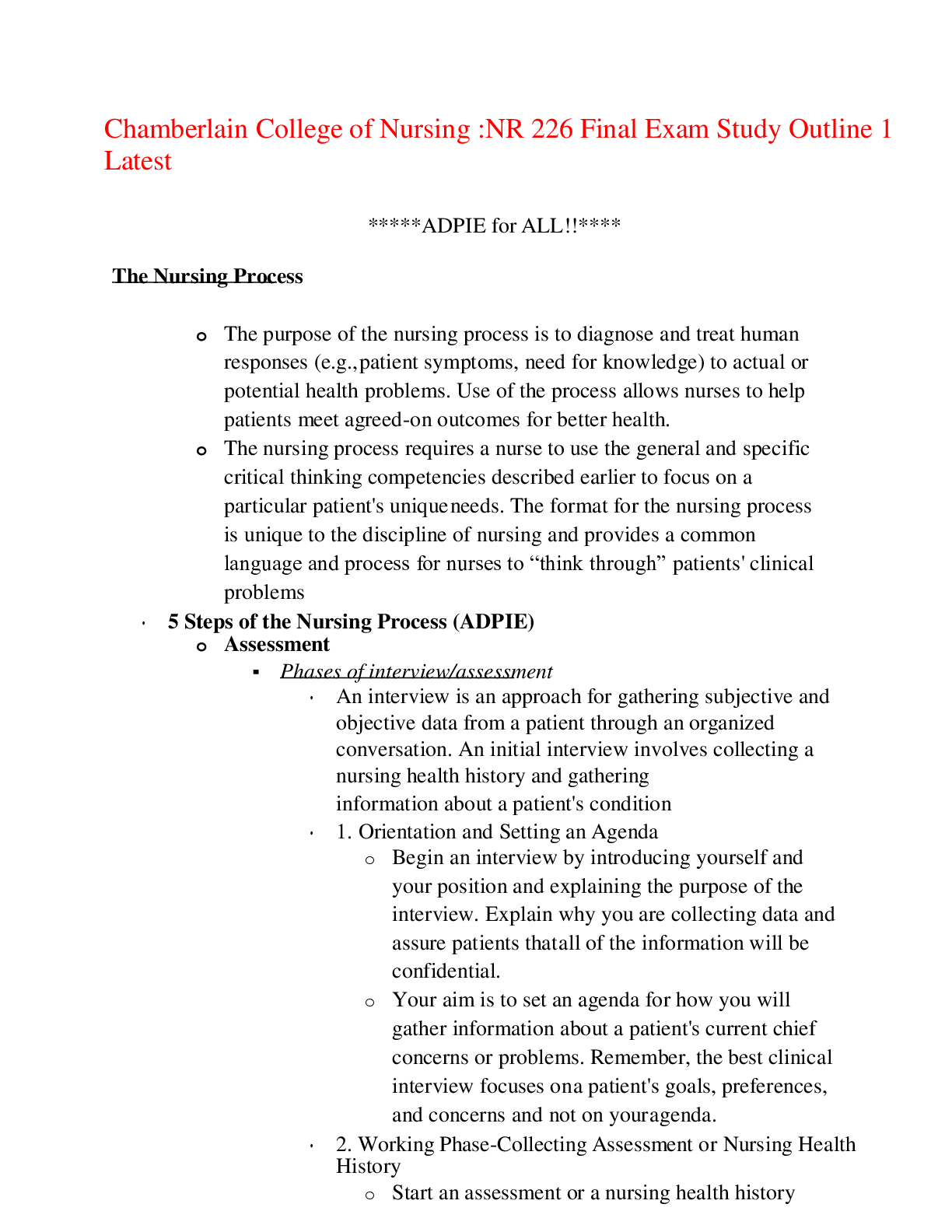
Buy this document to get the full access instantly
Instant Download Access after purchase
Buy NowInstant download
We Accept:

Reviews( 0 )
$15.00
Can't find what you want? Try our AI powered Search
Document information
Connected school, study & course
About the document
Uploaded On
Aug 19, 2021
Number of pages
63
Written in
Additional information
This document has been written for:
Uploaded
Aug 19, 2021
Downloads
0
Views
79


